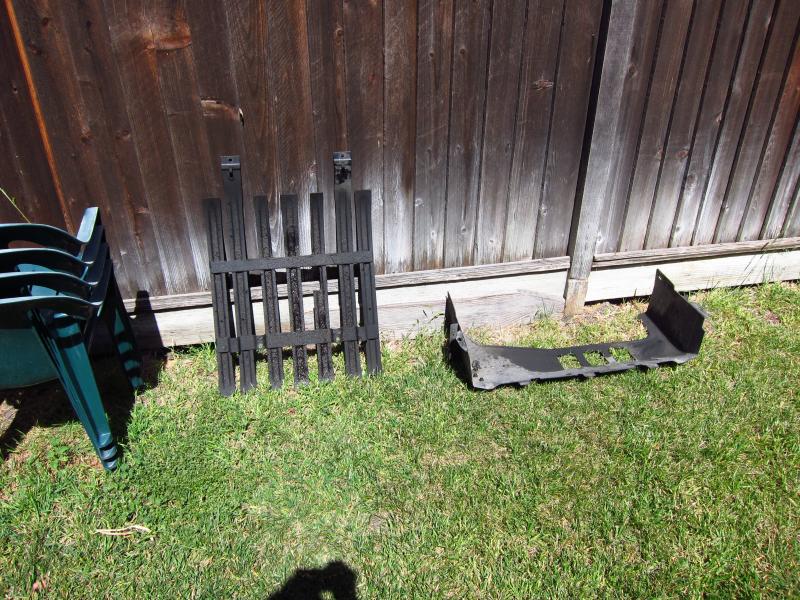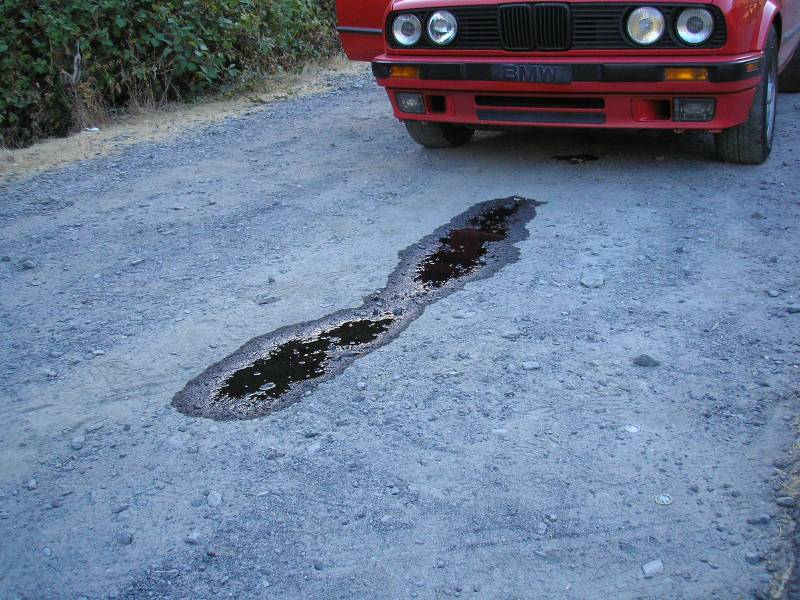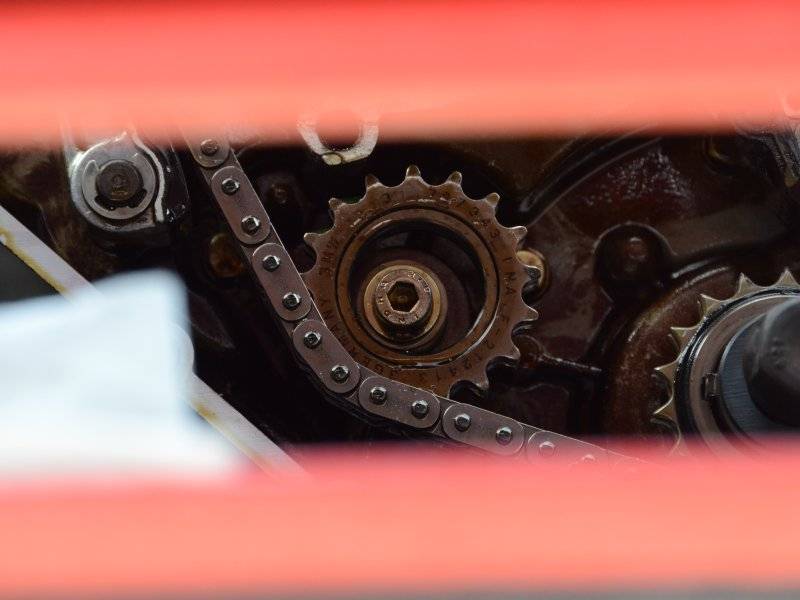patrick.net
An Antidote to Corporate Media
1,349,557 comments by 15,721 users - Al_Sharpton_for_President, stfu online now
Comments 1 - 16 of 16 Search these comments
Oh and for reference, here is where I am SUPER glad that the car didn't break down on me!
Highway 247 to Barstow:
http://maps.google.com/?ll=34.724467,-116.990333&spn=0.034743,0.052314&t=h&z=15&layer=c&cbll=34.724467,-116.990333&panoid=q1UNQe_dzUSvMkBz3LHo1w&cbp=12,337.78,,0,4.5
Highway 58 to Bakersfield:
http://maps.google.com/?ll=35.011684,-117.906604&spn=0.017381,0.026157&t=h&z=16&layer=c&cbll=35.011684,-117.906604&panoid=Rua_t7qOI06LByWa4-iUhg&cbp=12,100.11,,0,-0.59
Kettleman City is about 164 miles form my parents' house (and they are cool with me dropping my car there when it needs work since my father has every imaginable tool). I live about 20 miles form them, so I can get over there for projects pretty easily.
Anyway, I could have had AAA tow it at no charge, but I was really irritated with the motor & decided to drive it as far as it would get me. Well, as it turns out, revving the motor over ~2500RPM got the oil pressure high enough that the hydraulic tensioning piston for the chain pushed hard enough to keep everything in good alignment! So, 162 of the 164 miles were actually trouble-free since I was on the highway at constant RPM. The car still pulled 29MPG and the motor had full power. It was just the last two miles of stop lights where the car was really unhappy.
The car actually gave a death cry as I was driving home. I consider it a sign that I should toss the motor rather than fix it (again). The f***ing horn button started sticking about 5 miles from home on highway 85. So here I am, clunking down the highway and randomly honking like a goober. Sheesh. At least the horn button is an easy 5 minute fix.

I was trying to up load a picture of one of my hot-rods but goofed up....I don't know why.
It's cool. That rosemary picture makes me want to pan-fry some pork chops!
You should have SEEN the gunky shit that built up on this motor when I cleaned it off last year. There was 1/4" of road dirt & old oil built up on most of the front-facing surfaces of the motor. I had to get a metal pan, a gallon of paint thinner & a toothbrush out to rectify that, since the motor was mostly disassembled. The ultrasonic cleaning tank also helped. I love showing up for my office job with cut up hands & perma-grease that doesn't go away because it is IN the outer layer of skin. The only other guys at work that I know of that work on their cars at all are our lab techs. The engineering staff...I don't think that they change their own oil.
Funny side-story:
The skid plate under the motor was really nasty with leaked oil & power steering fluid, and all sorts of dirt. Basically, due to its design, I needed some sort of very large pipe cleaner to get the crap out of the worst spots on this thing. I went to a local hardware store & asked the guy if they had large pipe cleaners of some sort...like 3" in diameter and at least 24" long, for my car project. He sort of looked at me for a minute, and told me that they had just what I was looking for. He also informed me that I was the first person to ask for one of these that DIDN'T ask him where they could find "bong cleaners." I got a good chuckle from that.
The skid plate.

Why does the car have one? Well, yet ANOTHER misadventure led me to it!

Yeah, that's all of my motor oil on the ground. I hit a rock on my way out to my favorite cliff jumping spot on the Stanislaus Rivver in 2006. Oops. 12 miles from cell service...bummer. Still, it was a fun fun day on the river since I didn't notice this until we were done & back at the car.


Story & pics: http://bmw.e30tuner.com/my318is_pic_panbreak.php
I don't understand how you could be going through timing chains so often.
The timing chain is fine, I have never heard of one breaking in my 12 years in the E30/318iS community. It is the rest of the assembly that seems to have issues. A couple of people have had the bearings on that little sprocket blow out, and I guess that seems reasonable after 200,000 miles. The busted timing case casting is another thing though, and it is bullshit. I know of one or two others that have had that happen, and in the last year too. Maybe the cast ribs are a bad design & cause a stress concentration or something. Being aluminum, there's no endurance limit, so it is bound to fail at some point. Anyway, it is feasible that the casting was damaged when the sprocket failed last year. Even a small nick in the rib could be all it took.
But, since this motor seems to be of dubious reliability (previous owner didn't maintain it well, I drove it really hard), I am putting in a completely refreshed one with a modified timing assembly. The guys that are building my new motor change it to a single-row chain, which greatly reduces the inertial loading on the components. The single row chain has been track-proven to be just as reliable as the overkill double-row one. They also knock off like 4kg of reciprocating mass from the valvetrain & crank assembly, and around 15lbs from the flywheel assembly.
The REAL question though, is can I even use the motor I want in CA? I am not TOO concerned about SMOG since the car's emissions are about 3% of the allowed limits in stock form. The fuel injection & ignition are fully electronic, so the built motor can still be tuned to pull 30MPG on the highway & run clean when the throttle is not fully open. However, 11.5:1 compression might not play nice with the 91 octane pump gas we are stuck with here.
RE: skid plate. Years ago I was driving I-70 in Colorado/Utah and there was a dead deer in the road. I could feel the skid plate connect with the carcass but it was winter & possibly black ice weather, so I couldn't avoid. We drove all night - when we got home the next morning the dogs were eating the "treats" off the skid plate. They're really handy for that.
10:1 is the max on pump gas, and the computer will keep retarding the ignition if you get any pre-ig going on, and that kills performance and mileage. Plus, 11.5 to 1 requires a very stout crank, main saddles, main caps, and head gaskets. Plus, crank case pressures will be puking oil out of every breather if you dont get great ring seating.
double row chain vs single makes ZERO difference in parasitic drag. The valve springs are the biggest drag, and the cam bearing drag is next. If you remove the valve springs the cam spins pretty darn easy. Just saying, but do as you wish. I'd look at some performance info and try to back up that chain idea.
In those motors it makes a little more sense to keep the compression down and use a blower or turbo to make it run. Easier to pass smog, easier to tune. A bone stocker with an air pump aide will see instant gains.
Just my uneducated opinion.
I recommend Jasper engines. I have had once in my car for more than 10 years now. Expensive, but worth it.
10:1 is the max on pump gas, and the computer will keep retarding the ignition if you get any pre-ig going on, and that kills performance and mileage. Plus, 11.5 to 1 requires a very stout crank, main saddles, main caps, and head gaskets. Plus, crank case pressures will be puking oil out of every breather if you dont get great ring seating.
Aaah, but this is an OBDI car, with no knock sensors. It wouldn't know if there was detonation. I spoke with the engine builder at length yesterday, and discussed exactly this. There is no concern about detonation due to the design of the combustion chamber and the relatively low overlap between the exhaust & intake cams, as well as their modifications to the intake surfaces to improve fuel atomization. Apparently they have built 12.8:1 motors for racers, and one of them put 93 octane gas in it from a local Chevron because the pump at the track was busted. They didn't have issues. Many of their customers have similar compression & drive them on the street. So, I'll keep my fingers crossed, but considering that some stock BMW motors (M-cars) have 12:1 stock, I think it'll be OK. They seem to have 91 octane premium gas over in Missouri as well, so I'll ask that they do the custom dyno tune on it.
The crank...forged with 8 counterweights. The cranks in these cars are nearly indestructible, and some guys have put 400HP down at the wheels with this crank & 30PSI turbo setups. The crank they are using is a different one than the stock one (both forged with full counterweights); the new one has 7mm of additional throw. They re-machine all of the main & rod bearing seats, and use uprated bearings. Additionally, they modify the main bearing oiling system to provide 360° oiling grooves, put in a 360° thrust bearing, raise the oil pressure bypass pressure, install larger oil pump gears and a host of other stuff. They fully re-do the head and use different springs, lightened lifters & retainers.
They have been building high performance race & street motors for almost 40 years, so I have no doubts about their work. All of the forums I frequent highly recommend them, which is why I am trusting them with this project. You are absolutely right that all of these things need close attention, because without a proper rebuild, I would be pissing money away!
double row chain vs single makes ZERO difference in parasitic drag. The valve springs are the biggest drag, and the cam bearing drag is next. If you remove the valve springs the cam spins pretty darn easy. Just saying, but do as you wish. I'd look at some performance info and try to back up that chain idea.
Sorry, I didn't mean that it improves performance by reducing chain mass. I meant that it reduces wear on the timing guide assembly by reducing the mass. The chain turns a number of corners, and it has been known to whip / oscillate badly at certain RPMs, which eventually leads to chewed up parts. The ~50% reduction in mass should really help to cut down on that. It's purely a reliability/longevity modification.
In those motors it makes a little more sense to keep the compression down and use a blower or turbo to make it run. Easier to pass smog, easier to tune. A bone stocker with an air pump aide will see instant gains.
I did think a lot about a FI setup. In the end, it would be too much of a hassle in CA. They do a visual inspection as part of SMOG certification, and I would have to be swapping out the entire intake & exhaust systems every year to pass. Although FI is definitely a fast & easy way (and reliable if done properly) to get power, it is a real pain in CA!
Just my uneducated opinion.
Now now, no need to play coy. It sounds like you have built a motor or two (or more?).
I recommend Jasper engines. I have had once in my car for more than 10 years now. Expensive, but worth it.
Never heard of them, but I looked them up & it looks like the can do a proper budget rebuild.
Just for reference, this is the company I am having do the build for me. It is a family-owned operation, and a really good group of people. They have been nothing but courteous to me, and the owner Jim seems more than happy to spend a bunch of time on the phone talking car-stuff & answering any & all questions (and even providing insight I hadn't considered).
http://www.metricmechanic.com/
Here's the tech brochure for the series of motors that they do for my car. It's a fun read if you are into cars & know a little about the inner workings of engines.
http://www.metricmechanic.com/pdfs/metric-mechanic-m42-and-m44-engine-booklet.pdf
Jaspers is a national rebuilder with a good warranty, but mostly OEM applications.
Engines: I am an abuser first, builder second. I go fast, turn left, go fast, turn left, pull a tear-off, repeat.
The chain slap is a real issue. I would think cam walk is an issue too. You seem to be hooked up with intelligent people.
I assure you that any 4 cycle engine with a semi-sphere combustion chamber will not be happy at anything over 10:1 compression using non-lead fuel under 95. WHile the shape of the bowl and squish are important, it is the heat saturation of the piston top, the cylinder head and exhaust valves that pre-ignite the a/f mix before the spark arrives from the plug. They may be using some high-end coatings to control heat. I dunno.
ONe other thing, higher compression, higher perfomance pistons will be lighter than stock, so the crank throws will have enough extra material to be profiled or "knife edged" to help bring the throws to the correct match for the bob-weights. THe full circle oil is common, but the crank main oil holes must be chamfered and the jurnals radiused if you plan to abuse the engine. The radiused jurnals require some narrower bearings, but your engine guy knows that. Good rod bolts are a must. Polishing and Shot-peening the rods before they are resized with good bolts is a very good idea if you are using the old rods. If you are, then the new pistons will have the pin location moved to make sure the longer stroke from the crank jurnal does not result in the piston coming up too high at TDC. If you are going with new rods AND new pistons, then I humbly suggest that you choose the lonest rod within budget and the piston cost should remain constant since the pistons will be custom already for matching the stroked crank shaft (I guess).
The greatest pistons ever happen to come from souther cal. JE Pistons can be had forged or hyper, and coated. Hyper has odd ring gaps, and special clearences, but they are pretty light and tuffer than cast. Forged are light and super tuff. Go with a good ring set and you will see better oil vapor control due to reduced crank case pressure. The tech guys there are spot-on. Do not use cast pistons. Period.
The good internals just build life to an engine. Power is mostly about air in and air out. You knew that. Cam profile, valve size, spark system, fuel delivery, exhaust, cat-back. Lots of variables.
And than, once it all gets honking real good, the tranny or rearend will puke from the abuse (sorry, just being a prick! lol)
And than, once it all gets honking real good, the tranny or rearend will puke from the abuse (sorry, just being a prick! lol)
Nah, no worries. It's always good to make someone THINK before making a big decision. You definitely know more about building a proper motor than me (which is why I am having someone do it for me)!
I think you'd like the guys that are building this motor. Hell, maybe you know of them (Jim & Teddy Rowland). They got their start building engines for circle track racers. All of the good design practices you mention are ones that were mentioned in their tech brochure that I linked to. The motor is getting all new forged pistons & rods, which are also significantly lighter than stock. Just about every moving part in there is being changed out for a lighter version. 850 grams of moving mass is being removed from the pistons/rods, and around 780 grams form the valve train.
Stock, the motor has 10:1 compression. I always run 91 octane with it because of the performance chip in there (much more aggressive ignition timing), but some guys with stock software have run 87 octane just fine. The guys at Metric Mechanic said that 11.5:1 is not a big deal for this motor with its 4-valve design & good combustion chamber/piston crown shaping. A lot of people drive their motors on the street, and some are even more strung-out than this one!
You are correct about the multi-valve helping prevent pre-ignition --- more valve mass to remove heat and much much much better scavenging.
But, seriously, if you have a standard tranny you should put in a light flywheel, stronger clutch, and new pressure plate while things are apart. If you have a slushamatic see if B&M offer a valve body or clutch pack and look into a performance TQ converter. These are just things that will aide your compensation for what happens with more compression and different cams along with less rotating mass ... the thing will/may/should need to idle about 600 RPM higher than stock, for example.
Anyways, have fun.
Automatic tranny?!?!!? BLASPHEMY! An auto wasn't even an option on this car (since it was sort of under-powered & a step above the base-model).
I have a lighter flywheel in there now, with a stronger clutch from the 6-cylinder version of the car. The stock clutch was 215mm, and this is 228mm. Total weight savings was around 7lbs (the 4 cylinder in the car came with the heaviest flywheel BMW ever put on a car for some reason).
I am having the engine builder take that 6-cylinder flywheel and shave another 7lbs off of it. Guys with it that light have not had any chatter issues at idle, but it sure does idle a little rougher! I am not 100% sure about what will happen to the idle speed. Since both the ignition and fuel injection are fully electronic, they can work some pretty good tunes in there to have it behave almost stock. Still, with those cams & light flywheel, you may be right on about the higher idle.
I'll definitely have some fun! When I do the swap I will take some pictures, and maybe a video or two once it is broken in & running strong.
I sort of spammed-up a thread in the RE section with details of my latest car project, so I figured I would off-load some of that in here. I mean, it is probably more entertaining than the same-old whining & hoping for lower prices in the RBA, but it wasn't my thread.
So, I am in the market for a replacement motor for my vehicle. It is a 1991 318iS that I have been dumping money into since I got it in 2005 for $2000. I had an identical car prior to that (bought in 2000 as my first car) that I wrecked like the 21 year old moron that I was. Messing with that car got me into mechanical engineering, which I got a BSME in in 2007, and it has led me pretty deep into EE & software engineering through side projects with the control system & stuff. It is needless to say that I have a love of the car, and on top of being a source of hobbies & personal development, it is fun as hell to drive.
You just can't find a 2500lb sedan with room for 5 people & a load of climbing gear anymore, that also pulls 30MPG on the highway. Most new economy cars are faster, more fuel efficient and can probably take a corner faster with a good driver, but none of them are real driver's cars. I have rented & driven a ton of these cars, and they all feel like wearing socks in a bathtub. One of my main gripes is this electronic throttle nonsense since it robs you of a great deal of tactile feedback from the motor, and electronic stability control systems that easily override you. The other complaint is over-assisted steering. I used to run the car without power steering at autocross events to enhance the feedback!
OK, anyway, I was driving back from a climbing trip in Joshua Tree last week when part of the timing chain tensioning system let loose. Being that I have driven one of these cars for 12 years, I have built sort of a 6th sense for when things go wrong. Somewhere about 30 miles south of Kettleman City / CA41 I noticed what seemed like a new road noise. I knew it wasn't road noise, but what else was I going to do besides keep driving? I pulled off at CA41 to get gas & maybe a burger, and as I cruised to the gas station, I heard the sound of pistons & valves contacting each other that is so characteristic of this motor when the timing is off. SHIT! This particular motor was badly neglected by its previous owner, and I have had 2 major failures in the timing case in the last few years. I am big on preventive maintenance, but sometimes the remedy is a full rebuild, which I have been putting-off.
Here is what broke this time. Yeah, the stupid sprocket was fine, but the casting it mounts to broke off! Sheesh!

Thread w/ pics: http://www.m42club.coms/showthread.php?t=14748
Honestly, I really haven't been able to trust the motor in the last few years, and was considering other cars at one point. Last year, a little tensioner sprocket's bearings blew out and I spent 40 hours over a 3 day weekend tearing the motor apart & cleaning the hell out of everything in hopes of refreshing it (without pulling the head or dealing with main bearings).

What's wrong with this picture? This was last year's problem.
Thread w/ pics: http://www.m42club.coms/showthread.php?t=13574
I replaced that sprocket ($160 part, OUCH!) & put the motor back together. Well, a couple of months later I was getting some nasty noises from the front of the motor. I suspected a stripped bolt. Yup!

Thread w/ pics: http://www.m42club.coms/showthread.php?t=13720
The bolt head was working its way through the timing case cover lol. After fixing that, the really awful noise was gone. However, I still got this yucky rasping/knocking noise when the motor was fully warmed up & running 3100-3400RPM. I had the case open again to check everything, but nothing was loose or broken. It was a mystery! Well, after [whatever] failed last week, the nasty noise at that RPM was gone, replaced with the sound of a poorly constrained timing chain.

I have had other trouble with the motor, although further in the past. In 2006 the oil pump ate a chunk of timing chain roller. The previous owner hadn't maintained the motor very well, and even though I rebuilt the timing chain assembly, I was an idiot & didn't drop the oil pan to look for pieces! These are generally pretty reliable motors that you can get 300,000 miles from...but that requires pretty active participation in proper maintenance. I guess 220,000 miles isn't too shabby, considering the PO's neglect & how hard I drove it.
Page w/ pics: http://bmw.e30tuner.com/my318is_pic_oilfailure.php
So, I am tired of putting time & money into this 22 year old motor with 220,000 miles. I am NOT tired of the car itself though, and I can't imagine myself in a new car, or some (economical, reliable) boring inexpensive used econobox. I wish I was the type of person that didn't care about what I drove beyond "does it go when I put the key in," but I am not. Well, I have been wanting a fully built version of this motor for 6 years. 205HP, 9000RPM redline, bulletproof construction with all of the weak points redesigned & modified. Now's the time for it haha! Once I get hitched later this year...nope, not going to be able to justify the cost of this built motor. Still, it is cheaper than a new car, and these motors are more reliable than the originals. I expect to pull at least 150,000 miles from it, and that includes race events on top of daily driving.
Who are my fellow grease monkeys in here? Got any fun projects going, or just good home repair adventures?